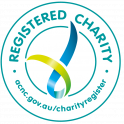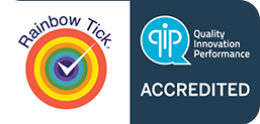Where can I find counselling for children in Melbourne?
If you’re looking for counselling for children in Melbourne, you’re in the right place. Better Place Australia child counselling in Melbourne has many locations spread out across Greater Melbourne which you can access by car, bus or train.
These are:
- Broadmeadows
- Cheltenham
- Croydon
- Melton
- Narre Warren
- Oakleigh
- Pakenham (Springs Centre)
- Wyndham Vale.
Better Place Australia child counsellors are qualified, caring and incorporate very effective techniques for empowering children to handle challenges in life.
Better Place Australia counselling for children in Melbourne empowers children
As children grow, they face challenges that require guidance and support to navigate these successfully. The process of counselling for children in Melbourne is an important step in the child’s life. Caring child counsellors at Better Place Australia can provide the support a child needs to navigate the challenges, build resilience and manage emotions.
The challenges could be:
- a change of school
- family conflict
- loss and grief
- peer pressure
- puberty
- any other issue that may be having a negative effect on the child’s mental health and well-being.
By seeking child counselling early for your child, it can help prevent issues from escalating.
What happens at child counselling sessions?
A professional and qualified child counsellor will work one-on-one, assessing the child’s needs, and addressing these using a technique that is best suited to the child. Techniques can include cognitive behaviour therapy, narrative or play therapy.
These techniques can help children to:
- use coping skills
- develop resilience and improve emotional stability
- learn how to express themselves and relate positively to others
- understand their family and friend relationships as they are now and how they change
- express their feelings in a safe place and manage strong emotions such as blame, guilt and anger.
The counselling style depends on the age and issues of the young people concerned.
How can parents help their child?
When a child is exposed to parents constantly in conflict, it can cause the young person more harm than the effect of a separation or divorce. Whether it’s some form of conflict at home, an issue at school or somewhere else, there are some simple, yet powerful steps parents can take to help their child become more resilient.
These include:
- putting the interests of the child first in decision-making
- ensuring both parents have meaningful involvement in their child’s life
- keeping parental conflict away from the child as much as possible
- listening to how the child feels about things.
Every child reacts differently to life issues and changes and some handle them better than others.
The aim of Better Place Australia child counselling
Every child reacts differently to their circumstances. The aim of a Better Place Australia child counsellor is to help a child understand and manage the changes the child is experiencing in a positive way. Our child counsellors have seen great outcomes after supporting children and young people.
These include:
- an increased ability to better understand and manage their feelings
- decreased levels of distress and challenging behaviours
- improved communication and problem solving
- increased ability to trust and form healthy relationships.
If you are seeking child counselling in Melbourne, please contact Better Place Australia.
Learn more about the mental health and well-being of your child
If you’d like to learn more about mental health and well-being in children and family units, visit the Centre for Better Relationships website.
Centre for Better Relationships is the research and advocacy arm of Better Place Australia, with resources for you to learn more.
Read sector news articles such as: Understanding Child Development; and Highlighting the Imperative of Investing in Children and Young People’s Safety.
There are also learning videos you can watch, such as: Preventing Emotional Abuse of Children; Supporting Children Who Have Disclosed Trauma; The Whole Child; and The Role of Parents Preventing Emotional Abuse of Children.
By learning more, you will be better equipped to protect your children and support them during tough times.






